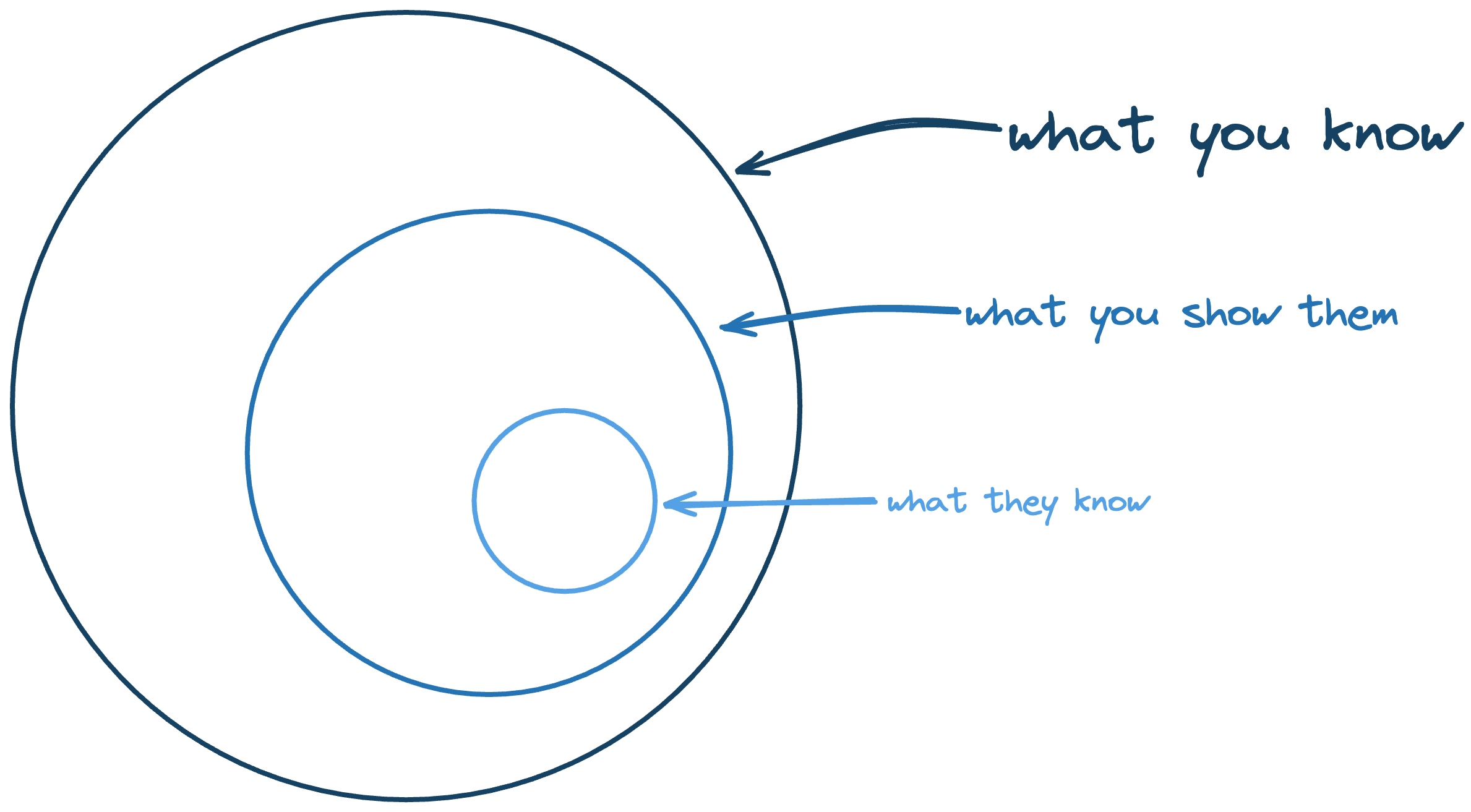Wikipedia - Curse of knowledge:
The curse of knowledge is a cognitive bias that occurs when an individual, who is communicating with others, assumes that others have information that is only available to themselves, assuming they all share a background and understanding.
To be more specific, the "curse of knowledge" in software development manifests in teams where team members assume that others have the same background, context, or understanding of software coding problems as they do.
It also manifests in senior software developers when they fail to remember what it was like to be a beginner learning the basics and often forget to convey the problem solution in a more approachable and simple way.
Software developers' knowledge and experience can sometimes act as a curse, leading to a disconnect between them and less experienced programmers.
For instance, while designing a user interface, a developer might assume that users will know how to use it because the developer is already familiar with the UI disregarding the learning curve that it would take for somebody who is a first-time user.
Similarly, during the development of a new feature, there can be miscommunications because of an assumed understanding of how the feature should work.

Overcoming this "curse" requires conscious effort and an awareness of this cognitive bias.
The senior members of the team need to be mindful of the varying skill levels and experiences within the team. It's essential to cultivate a culture of open communication where team members feel comfortable expressing when they don't understand something and asking for clarifications without the fear of being judged as inadequate or inferior.
For example, pairing senior developers with less experienced ones encourages continuous learning and helps onboarding new developers much more easily into a complex project.
In this environment, junior developers can gain insights from their more experienced colleagues' practical applications and consequently avoid potential misunderstandings. It's about creating an atmosphere where everyone acknowledges that everyone else might not be on the same page, fostering patience, and understanding to bridge the knowledge gap.
Don't be afraid to ask for help and never say no to people asking for help.
Cover image by diggeo
